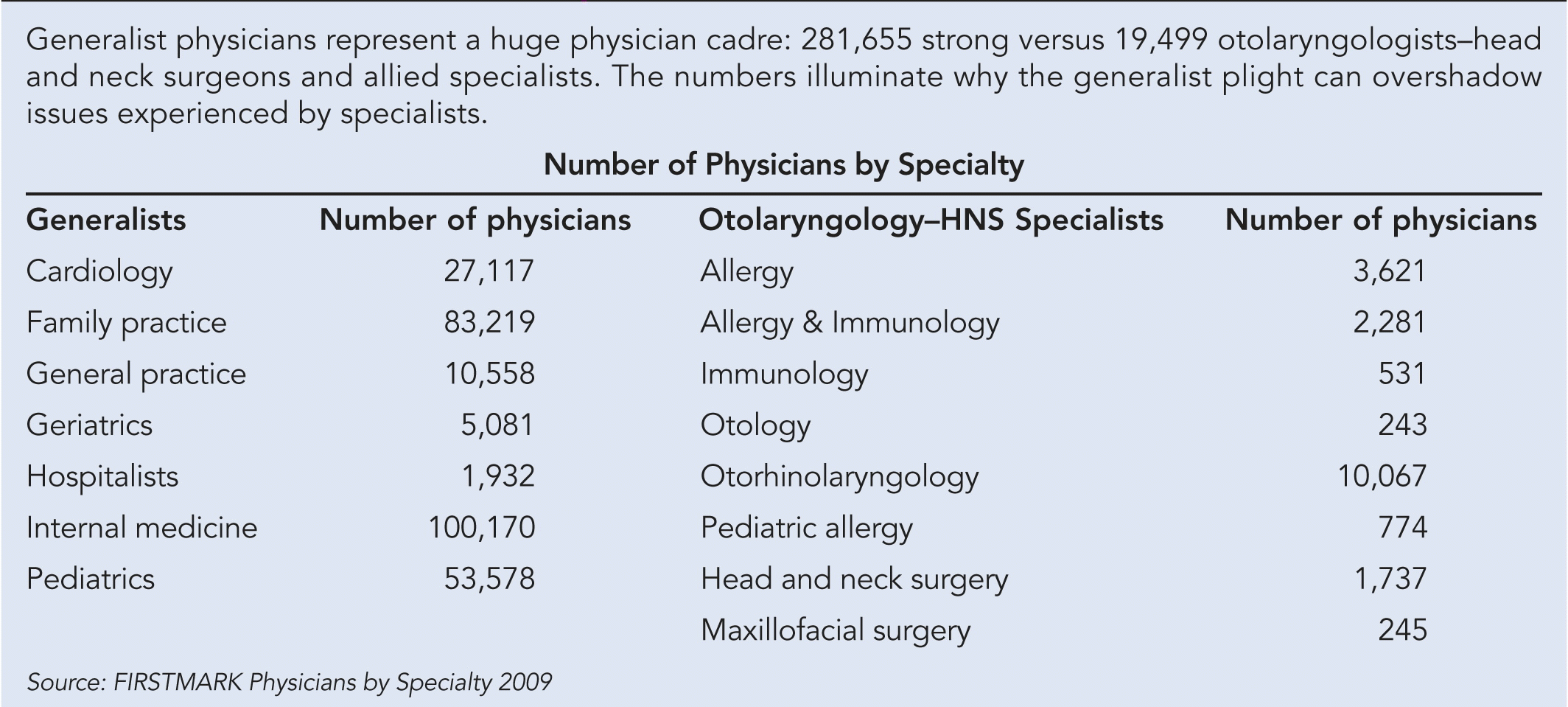Although a boost to Medicare rates would help ease the pain, there are other factors thinning the PCP ranks. Massachusetts, with its mandated health insurance coverage, is losing PCPs at a rapid clip just as more people are getting insurance. In the Massachusetts Medical Society’s 2008 report on its physician workforce, there wasn’t much encouraging news. An aging physician workforce (one-third are over age 55), a 3.5% increase in practice costs and a 5.3% jump in malpractice insurance rates, 12 of 18 surveyed specialties in short supply (otolaryngology-head and neck surgery wasn’t one of them), and 52% of medical residents leaving the state after completing their training compound the problem. Former Society President Bruce Auerbach, MD, concluded, We need more medical student slots and medical residency slots. We need payment reform to do things to encourage people to go into the primary care field.
Explore This Issue
September 2009Beyond Simplistic Solutions
Otolargyngologists-head and neck surgeons are in the vanguard of physicians offering insights and solutions to the PCP shortage beyond the zero-sum game. David Nielsen, MD, CEO and Executive Vice President of the American Association of Otolaryngology-Head and Neck Surgery, recently represented the Council of Medical Specialty Societies at a meeting in Washington intended to build consensus among major stakeholders on how best to solve the PCP shortage. Everyone believes primary care is in crisis and increasing their payments needs to be done, he said. But there’s also a crisis in the shortage of general and specialist surgeons as well as surgical emergency room coverage, and a budget-neutral solution may not be wise.
According to Dr. Nielsen, the group took aim at current incentives to practice inefficiently, such as defensive medicine, including tests, imaging, and medications that aren’t expedient and don’t improve outcomes; and some patients who demand unnecessary tests or treatments, such as the mother who requests (an unnecessary) prescription for antibiotics for her child’s otitis media, operating under the treat me because I’m paying you mentality. With so much pressure to keep revenues up, doctors often don’t have enough time to discuss treatment options adequately, he said. Citing the example of women preferring repeat Caesarean sections for convenience rather than medical necessity, he added that some patients have made up their minds about treatment and it’s harder for doctors to challenge their demands and take time to explore all treatment options and evidence-based clinical recommendations with them.

Leave a Reply